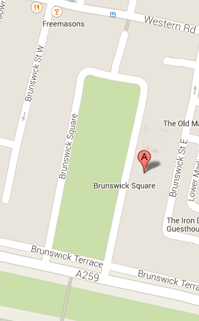Family Stories
Well a day! What a particular hornet’s nest I did unleash when last I strove to enter into my journal. For all her schooling Liza, I learned, had never been schooled in the ways of her own family at all. What little she knows concerns mostly her mother only – with no reference to other kin. And those things she do tell of do not sound at all familiar to me. Now this may be accounted passing strange to anyone who comes to read this journal: that two sisters – Liza’s mother and I – each held differing accounts of the stories of our lives.
‘Tis easily explained, in fact; for none knows who the father of my mother’s first born had been -‘twas a secret my mother took with her to the grave. And though I remember my own father but dimly, I remember also that he was mortal fond of my half-sister and that, in my childish way, I were sometimes envious of the two of them.
It were a shock to poor Eliza to discover that her own mother was illegitimate. Why, truth to tell, I laughed, ‘tis the illegitimate what outnumbers the legitimate through the length and breadth of the land. But there, I tells her. She being so gentle and kind and loving, ‘tis sure her grandfather were a member of the gentry at the very least. Why, says I roundly, ’twould be no wonder at all to discover the gentleman had been of Royal stock! Besides, I explained, it were different in days gone by and folk were not so mimsey-mamsey as they are to-day. What with wars and famine and pestilence, no-one thought to raise an eyebrow at a young girl with no husband: too many young men were lost in the prime of their lives.
For all that the old King were a family man and that he and the Queen had no breath of impropriety attaching them, the common folk have always been closer to Nature than to Royalty. They take their lessons from the beasts and the birds surrounding them, and not so much from Kings and Ministers. Mind, the way some of the Gentry do go on ( why, all the world did marvel at the ways of Lord Byron and the Shellys and their crowd, didn’t they?) there be not much to distinguish men from the beasts and the birds often-times.
For my own part, I have never been compelled to ape the gentry and, like my Grandam and my mother before me, indeed do feel sorry for their women, like my mistress and her gossips. Always, I have considered that though no bars adorn their windows, they are nevertheless caught fast in cages like unto wild animals: and every bit as sour and miserable deep in their hearts, as any caged animal.
‘Tis no wonder then, that Miss Hannah be such a sly puss, strapped into her corsets and hovering around her mother; and mincing round in her clattering pattens when she should be striding free through the soft grass and the scented hedgerows. Instead, there she be making sheep’s eyes at John Coachman and whispering behind her fan to soldiers in the lending library, or (so the ladies maids across the square have seen with their very eyes) letting fall her linen handkerchief each time an Officer of the Fleet passes by.
(Eliza looks at me now with astonishment and whispers that surely I am mistaken for Miss Hannah is a lady. And the daughter of a lady. But I remark that she is a woman, and the daughter of a woman - and in her womanly parts be no different to Dora the mending woman, or Daft Molly selling flowers by the Steine.)
But enough! ‘Tis all very well for Eliza to encourage me to write my thoughts and recount my history for the future: it seems I have as much to tell her about the present and the ways of the world in these times, as I do about days gone by.
I shall have done now and we will talk about my crusty Game Pie, and she will tell me the plot of the book she is reading and we shall rub the prickles from each other and settle comfortably in front of the fire together as of yore.


